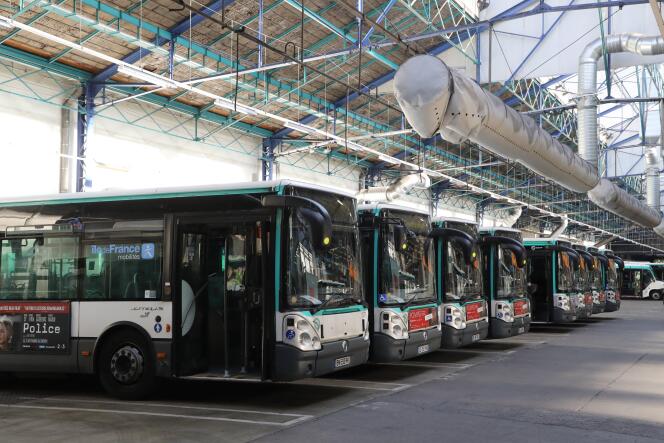


The unmarked building in Romainville, to the north-east of Paris, houses a vital service of Paris transport authority RATP: the passenger information and regulation center (CRIV). On two floors of the building, 330 people have been monitoring bus traffic in Paris and the inner suburbs since 2013. They are preparing for a few weeks that are as strategic as they are challenging: of ensuring that traffic flows as smoothly as possible during the Olympic and Paralympic Games, the latter overlapping with the start of the new school year.
For this exceptional period, Fabien Plazanet, CRIV director, and Victor Ganivet, operational director of the bus network, have recruited 40 additional staff and called on a few young retirees to bolster the workforce.
To accommodate the Olympic Games and traffic constraints, "we had to reconstruct part of the bus network," said Ganivet, who asserted that RATP staff know what they're doing. "We're used to having Tour de France arrivals or Bastille Day ceremonies," said the executive. But this summer, it will be every day.
The first line diversions began as early as March, when the first Olympic sites were being set up, with a build-up at the beginning of May. Twenty lines have already been disrupted, and this will increase to 50 out of 330 lines by early July. It will be September, or even October, before everything returns to normal.
One small consolation: during the Olympic Games, no construction work is scheduled to take place in Paris, which will make it easier for buses, whose average speed struggles to exceed 10 kilometers per hour. Above all, the frequency of the Noctilien night buses will be increased throughout this period, with buses running on Friday and Saturday timetables every day of the week. Like all other buses, they must be in constant contact with a dispatcher. The CRIV will therefore operate around the clock, seven days a week.
One of the challenges for the CRIV during the Games will be to adapt traffic to a situation that will change daily as the events unfold. "We already know, for example, that July 26 [the opening ceremony] and August 3 [the start of road cycling events], will be days to avoid," said Pierre Ravier, deputy managing director of the regional transport authority IDFM, chaired by the regional council president, Valérie Pécresse. Forget the bus on days when there are road events: marathon (August 10 and 11) or cycling (July 27, August 3 and 4). Routes also need to be reorganized at each event exit. When spectators leave the Accor Arena in the 12th arrondissement, for example, driving in the area will be impossible. The security perimeter has to be adapted to the size of the crowd. The operators working in the five rooms of the Romainville building are in charge of adapting routes, sending information to conductors and providing information to passengers, including real-time updates on apps.
You have 33.42% of this article left to read. The rest is for subscribers only.
